The increased popularity of bamboo products over the last five years owes much of its success to its superior sustainability factor when compared to cotton, silk, and linen. Now, eco-conscious consumers are starting to recognize bamboo’s superior durability also.
So, do bamboo sheets wear well? Bamboo sateen requires delicate care and is much softer than bamboo twill making it more vulnerable to wear and tear. Twill is stronger than sateen and more durable but it is vulnerable to shrinkage and not as comfortable.
When it comes to bamboo sheets it’s important to research all the various options so that you can make the best-informed choice possible.
Table of Contents
ToggleDo Bamboo Sheets Wear Well? The Importance of Weaves in Bamboo Sheets
The weave of the fabric determines how the sheets will feel, look, and wear. Both bamboo sateen and twill are both made from 100% bamboo fabric but the difference in weave changes the way they feel, and their texture, and can have an impact on the durability of the sheets.
Sateen
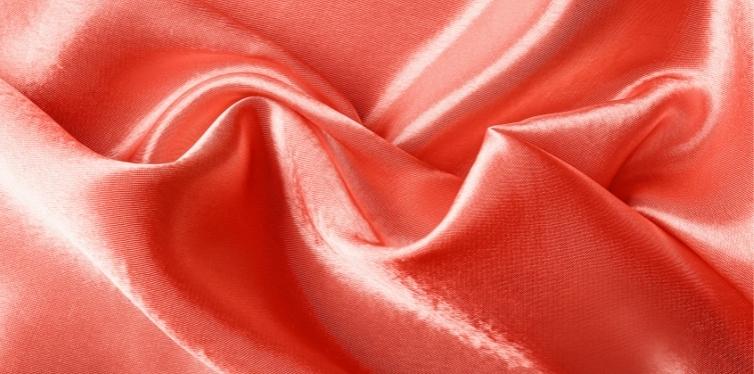
Sateen is a type of weave that is one-yarn-under and three-yarn-over. Sateen is commonly used by designers and manufacturers to help produce soft, glossy, increased thread count bedding with a solid, compressed texture. Due to the larger thread count, sateen sheets provide a silky feel and shiny look that some say is better than silk itself. This makes sateen a great vegan alternative to silk sheets.
The exposed yarns from the one-yarn-under and three-yarn-over weave make sateen fabric slightly more gentle than its twill weave equivalent. This delicacy in material requires that the owners of the sheets take special care of them with regular washing as per the manufacturer’s instructions.
The added delicacy of sateen also affects the wear of the sheets. The exposed yarns allow wear and tear much more easily than twill. Most commonly, sateen sheets become a victim of wear and tear during improper care during cleaning, washing, and stain removal. If you ensure the proper care of your sateen bamboo sheets they should last you a very long time.
Pros
- 2 times softer than twill due to extra exposed yarn.
- Just as soft and glossy as silk.
- A great vegan alternative to silk sheets.
- Costs significantly less than silk.
Cons
- Requires proper and regular care to maintain quality and durability.
- Production of sateen is more intense than twill making them more expensive.
Twill
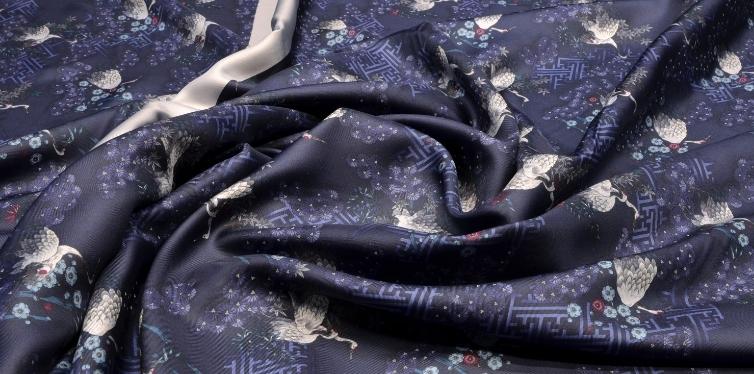
Twill weave is much like that of a pair of your jeans, distinguished by a diagonal rib or twill line. In a twill weave, one or more warp fibers weave over and under two or more weft fibers. They alternate in a regular repeated pattern. A twill weave is tight, short, and very fine.
This makes bamboo twill slightly less soft than its sateen counterpart. However, it is still far softer than traditional cotton sheets or bamboo cotton blend sheets that are available. This is a common area where it’s unclear who wins in the bamboo vs cotton sheets comparison.
The tighter, shorter, and fine yarns on a twill weave help make the fabric significantly stronger than sateen. This means you will experience far less wear and tear with your twill bamboo sheets. If you are looking for studier sheets that will stand the test of time then twill is the best choice.
This superior durability comes at the expense of the twill’s softness. Bamboo twill is not as soft or as glossy looking as its sateen counterpart. There is also the risk of more shrinkage compared to sateen. During the first few washes, you may notice this shrinkage due to its loose weave structure.
You can buy twill sheets pre-shrunk so that there is no issue with it fitting them on your bed. It’s worth noting that twill will still shrink a little if exposed to very hot or boiling water. It’s important to take out the proper care for your sheets. To avoid any shrinkage issues you should always wash your bamboo sheets in cold water and line dry when possible.
Pros
- Much more durable than sateen.
- Cheaper than bamboo sateen.
- More efficient and eco-friendly production method.
Cons
- Not as soft or smooth as bamboo sateen.
- Will shrink during the first couple of washes if not bought pre-shrunk.
Top Tips for Bamboo Sheets Care
No matter what type of bamboo sheets you decide to purchase they all require the same amount of care in order to keep them working optimally and to avoid any unwanted wear and tear. If you want your bamboo sheets to retain their high-quality softness and durability, make sure you follow these tips.
Please note, these tips are typical for washing bamboo sheets, it’s important to always read the manufacturer’s specific recommendations and follow them carefully. Care methods for bamboo sheets may vary.
Use Natural Products
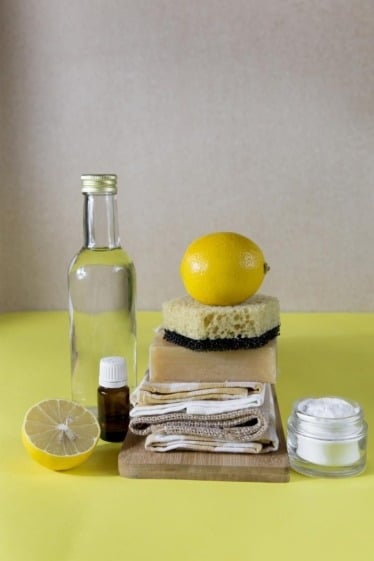
Baking soda is a fantastic natural cleaning product to use on your bamboo sheets. Products with heavy chemicals will damage your sheets and will compromise their integrity. Vinegar and bleach will both damage your sheets also.
Wash in Cold Water
Not only will this help you save energy and reduce your impact on the environment, but it is also the best washing method for bamboo sheets. They need to be washed at no more than 86F (30C) on a gentle cycle for best results. Exposure to hot or boiling water will compromise the bamboo fibers making them vulnerable to wear and tear. Always follow the instructions that come with your bamboo sheets.
Wash Separately
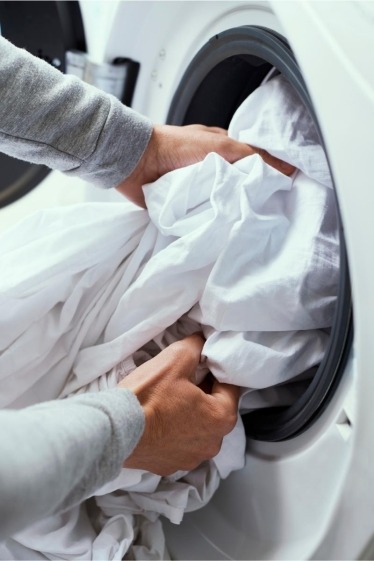
You can wash your sheets with other items but it’s best to wash them separately to avoid any issues. If you do wash with other items like clothes or bath towels make sure you wash the correct colors together. Whites, light colors, and dark colors should all be separated. Failure to do so could result in the staining and bleeding of your bamboo bed sheets.
Don’t Use a Fabric Softener
You have made a wonderful choice to buy sheets made from a material that is naturally soft. You don’t need a fabric softener, the long bamboo fiber will actually get softer with each new wash. Fabric softener will not help bamboo fabric get any softer than they already naturally are. How bamboo sheets are made has an influence on this effect as well.
No Dryer Strips or Bleach
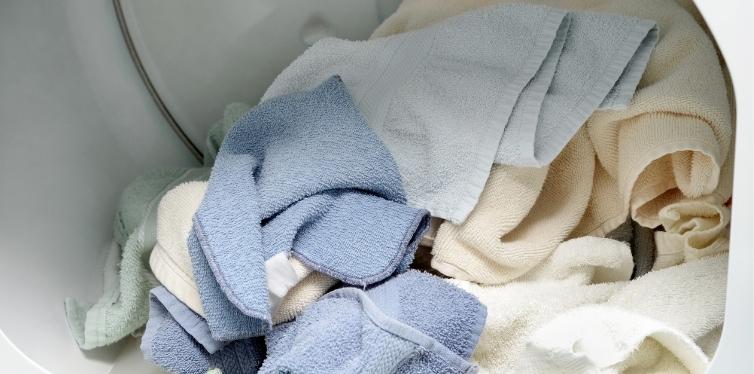
Never expose your delicate bamboo sheets to harsh chemicals like the ones found in dryer strips and bleach. Your bamboo sheets did not require harsh chemicals to be produced and they don’t need harsh chemicals to maintain their quality either.
Use a Natural Stain Remover
Should you have the unfortunate accident of staining your bamboo sheets always use a natural stain remover. We recommend using a natural stain remover as an eco-friendly option. If your sheets have a bloodstain, you could also use hydrogen peroxide to pre-soak the sheets before being washed. Vinegar also makes for good natural stain remover when mixed with a little bit of water.
Final Thoughts
Choosing bamboo sheets has many benefits to the owner, most notably superior softness and durability when compared to traditional materials like cotton, silk, and linen. However, maintaining these high-quality properties relies on the owner to maintain proper care of their bamboo bedding.
Wear and tear on bamboo sheets most commonly occurs when improper care is given to the sheets during cleaning, washing, drying, and stain removal. Make sure to always follow the information provided to you by the manufacturer and the advice given in this article.
Given the proper care and attention, bamboo sheets are the superior choice for bed sheets offering unrivaled softness, breathability, durability, and sustainability. Bamboo bedding will give you a lifetime of comfort and good sleep if properly looked after.



